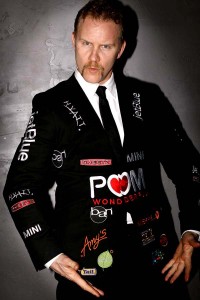A Bad Moms Christmas
Posted on November 2, 2017 at 6:00 am
D| Lowest Recommended Age: | Mature High Schooler |
| MPAA Rating: | Rated R for crude sexual content and language throughout, and some drug use |
| Profanity: | Very strong, explicit, and crude language |
| Alcohol/ Drugs: | Drinking, drunkenness, substance abuse humor, drinking to deal with stress, drinking as a bonding experience, drugs, |
| Violence/ Scariness: | Comic peril and violence, no one hurt |
| Diversity Issues: | Mild racism portrayed as humorous |
| Date Released to Theaters: | November 3, 2017 |
| Date Released to DVD: | February 5, 2018 |

If you think these things are hilarious, then “A Bad Moms Christmas” is your movie:
1. A young child repeatedly saying the words that go with OMFG, which she explains she heard when her daddy and his girlfriend were yelling at each other in the bedroom, and the girlfriend punched through the wall and they did it seven times.
2. A character who works in a spa meets the man of her dreams when he asks her to wax his private parts, which he describes in detail, so he can participate in a “Sexy Santa” male stripper competition.
3. At the competition, one of the strippers is revealed to be overweight.
4. Three moms deal with holiday stress by getting drunk at the mall, grinding on Santa, and then stealing a Christmas tree decorated with sneakers from Footlocker.
5. A mother slams her teenage son in the crotch with a foam bat, just for fun.
6. An extended product placement for a trampoline-jumping party place.
I do not.
I didn’t like the first Bad Moms movie, either. Like the original, this is a slack and lazy script that pretends to be all “you go, girl” empowerment but in reality has contempt for its intended audience, clearly thinking we don’t know or won’t care that we are being insulted. The pressure women are under to be everything to everyone and the complicated relationships women have with their mothers and daughters is well worth exploring and well worth exploring via comedy. But the men who wrote this have no particular interest in exploring it. This is just a bunch of dumb scenes strung together with so few ideas that they have to throw in some truly excruciating product placement with an extended scene in a trampoline playground until it is blessedly time to go home. It is a real shame to waste the monumentally talented cast on this smug and silly story, including the criminally underused Jay Hernandez. It’s bad enough that his role in the film is “perfect boyfriend,” but the script inflicts some casual racism on him as well. A wealthy woman mistakes him for a bellhop, in the home of his girlfriend, not even a hotel! Oh, my aching sides!
Oh, and the trampoline playground people should get their money back because this movie makes it look like the most un-fun thing ever, except for maybe watching this movie.
In the first film, Amy, a harried newly single mother (Mila Kunis), Kiki, an overwhelmed stay at home mom (Kristen Bell), and Carla, a hard-partying pottymouth with a teenage son (Kathryn Hahn) join forces to oppose the impossible standards of perfection and the mean girl PTA President (Christina Applegate) who embodies them. In the sequel, they face two of any mother’s most high-pressure situations: Christmas and the arrival of their own mothers.
Amy’s mother is a demanding perfectionist who insists that the family attend the five-hour version of “The Nutcracker” in the original Russian and sing at 300 houses dressed as characters from “A Christmas Carol” (Amy as Scrooge) with a choir as back-up so they can win a caroling contest. Carla’s mother (Susan Sarandon) is a rock and roll party girl who calls herself Isis (“like the terrorist group,” she explains), constantly either high, “borrowing” money, scamming someone, or all three at once. And Kiki’s mother (Cheryl Hines) is somewhere between smothering, helicoptering, and Single White Female crazy stalking.
A bunch of random stuff and outrageous chaos happens before the heart-to-heart talks that belatedly sort everything out, including some sort of job interview that occurs late on Christmas eve for no other reason than that they want to tie things up and figure no one will notice, to say nothing of a complete personality change here and there. It isn’t that we expect realism from a broad comedy, but it is fair for us to expect that once we enter the movie’s world, its premises will remain consistent enough for us to enjoy the payoff. Instead, we get this, and a lump of coal in the stockings of all who were responsible.
Parents should know that this movie has extremely raunchy humor with many explicit and crude sexual references and some sexual situations and very strong language used by and in front of children. Characters drink and use drugs, and they drink to deal with stress and to bond with each other. There is comic violence and peril, but no one gets hurt, and there are conversations about death and divorce of parents and about poor parenting.
Family discussion: Who is responsible for the standards the moms felt they had to live up to? What should the moms have said to their mothers? Why didn’t they say it?
If you like this, try: “Bridesmaids”



 Morgan Spurlock took on fast food in “
Morgan Spurlock took on fast food in “